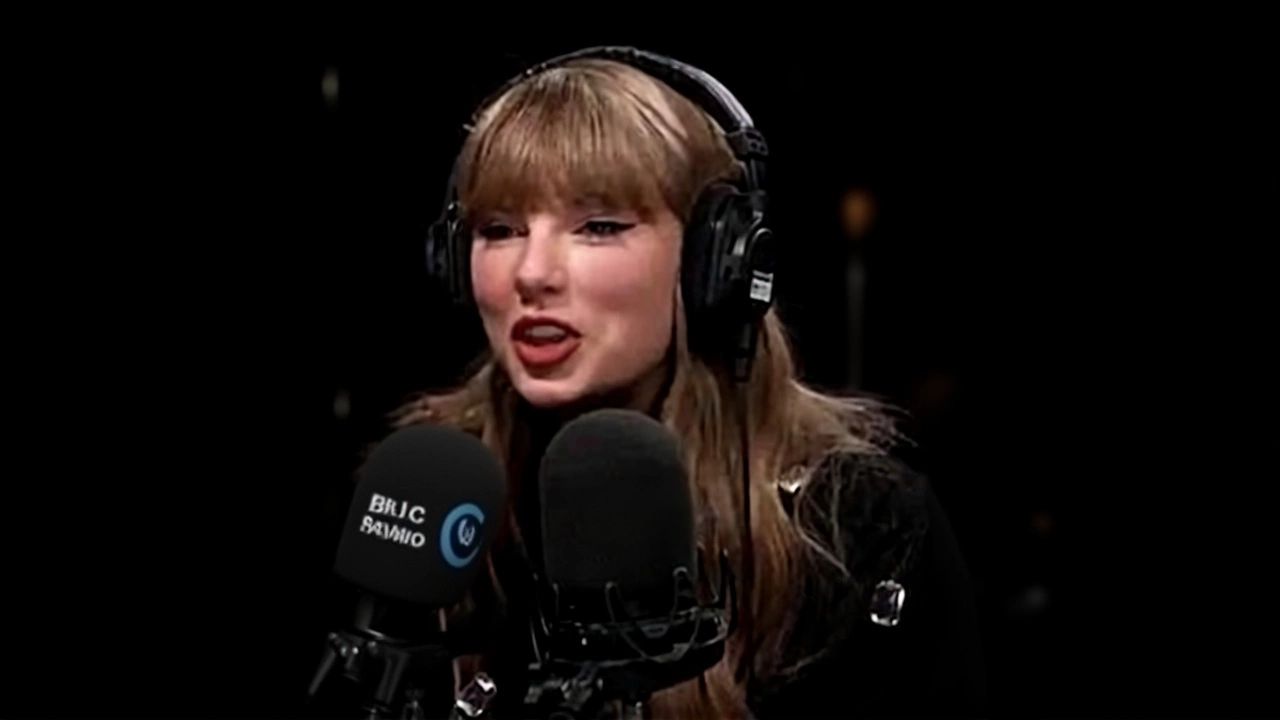When Taylor Swift, singer‑songwriter of Republic Records dropped her tenth studio effort, Midnights, on , the music world held its breath. The hype machine—five months of cryptic teasers, a silk‑blue aesthetic and a sold‑out stadium tour—suggested a cultural moment. Yet the critical chorus that followed was anything but unanimous.
Background & Anticipation
Swift’s last two releases, Folklore and Evermore, were praised for their indie‑folk intimacy, a stark pivot from the synth‑laced pop of Reputation and 1989. Midnights Album ReleaseLos Angeles, California was billed as a return to pop, but with a night‑time, “vintage‑edgy” spin—think neon‑lit bedroom confessions instead of stadium anthems.
The record arrived as a 13‑track standard edition, plus a “3 am Edition” with seven bonus cuts. Tracks ranged from the synth‑driven love‑song “Lavender Haze” to the punchier “Karma” and the introspective “Mastermind.” Critics were primed to compare the lyrical depth of her recent folk work with the production swagger of her early‑2000s catalog.
Critical Reception: Praise, Puzzles, and Pitfalls
Reviews quickly coalesced around three recurring grievances: homogeneous production, under‑utilized guest spots, and a sense that many songs felt “half‑baked.” The Kenyon Collegian (October 2022) called the album “underwhelming,” noting that while individual tracks were “enjoyable,” the collection failed to reach the “greatness” of Swift’s pandemic‑era releases. Wheatley Wildcat (November 2022) singled out the 3 am Edition, lamenting that the “overhyped” tracks didn’t live up to the lofty expectations set by the promotional campaign.
One of the most talked‑about moments was the collaboration on track four, “Snow on the Beach,” featuring Lana Del Rey, acclaimed vocalist and longtime indie‑pop icon. Critics argued Del Rey’s ethereal vocals were buried beneath Swift’s own, turning what could have been a duet into background texture. Random J Pop blasted the song as “an album for the sake of an album,” suggesting the feature was more about star power than artistic synergy.
Statistically, the backlash mattered less to the numbers. According to Billboard, Midnights moved 1.578 million album‑equivalent units in its first week, debuting atop the Billboard 200—a testament to Swift’s commercial engine.
Fan Response & Commercial Impact
Fans split down the middle. Social‑media threads overflowed with listeners labeling the album “the best work of her career,” while others echoed the critics, calling it “middling as hell.” A poll conducted by MusicRadar in December 2022 showed 52 % of respondents enjoyed the album, but only 38 % would recommend it to someone who hadn’t heard a Swift record before.
The “Midnights Tour,” launched in May 2023, turned the album’s songs into stadium anthems, boosting streaming numbers for tracks like “Anti‑Hero” and “Bejeweled.” Yet streaming analytics from Spotify revealed a sharp drop‑off after the first three songs in most user playlists, supporting the criticism that the record lacked consistent “magic.”

Industry Analysis: Why the Disconnect?
Music scholar Dr. Elisa Moran of NYU’s Music Business Institute offered a possible explanation: “Swift’s brand is built on narrative arcs. With Folklore and Evermore, the story was intimate and cohesive. Midnights attempts a meta‑concept—sleeplessness—but the production homogeneity makes every track feel like a variation on the same synth loop. Listeners crave evolution, not repetition.”
Furthermore, the strategic timing of the release—just after the fallout from several high‑profile streaming platform disputes—meant many critics were already primed to look for missteps. The album’s length (over an hour) clashed with the modern preference for bite‑size EPs, reinforcing the “should have been an EP” narrative.
What’s Next for Swift?
Swift hinted at a “re‑imagined” version of Midnights during a surprise Q&A in January 2024, promising “new mixes” and “deleted verses” that might address the critics’ concerns. Whether those revisions will win over the skeptics remains to be seen, but the artist’s track record suggests any follow‑up will be met with massive attention.
Frequently Asked Questions
How did the mixed critical reception affect album sales?
Despite the lukewarm reviews, Midnights sold 1.578 million units in its first week, topping the Billboard 200. Streaming numbers stayed robust, though playlist placements favored the lead singles over deeper cuts, indicating that critical opinion had limited impact on the overall commercial performance.
Why was Lana Del Rey’s contribution to “Snow on the Beach” criticised?
Reviewers noted that Del Rey’s vocal was mixed low, making her verses barely audible. Many felt the feature served more as a publicity stunt than a genuine artistic collaboration, especially when compared to her more prominent guest spots on other artists’ tracks.
What are the main criticisms about the album’s production?
Critics pointed to a pervasive “synth‑loop” sound across most songs, leading to a sense of monotony. The arrangements rarely deviated, and lyrical themes—mostly sleeplessness and introspection—were repeated without fresh narrative angles, making the 13‑track run feel overly long.
Did any tracks receive unanimous praise?
“Anti‑Hero” emerged as a standout, earning plaudits for its hook and lyrical candor. Even the most critical reviewers singled it out as a highlight, and it quickly became a staple on both pop radio and streaming playlists.
Will a revised version of “Midnights” address the critiques?
Swift hinted at a “re‑imagined” edition with new mixes and omitted verses. If released, these changes could broaden the album’s appeal and mitigate the “over‑produced” criticism, but only time will reveal whether fans and critics will respond favorably.
